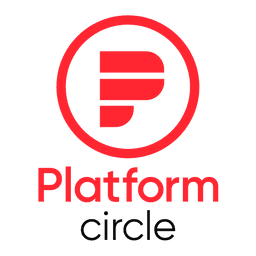Have you been struggling to master contact management? It can be quite difficult, especially if you have many contacts within your network. This post will explain how to master contact management and show you a special tool that makes the process much easier.
In our digital age, where connections go across continents and collaborations go beyond borders, mastering contact management has become more than just a skill; it is a necessity. Whether you are an entrepreneur, a professional, or an individual navigating personal relationships, the way you organize and engage with your contacts profoundly impacts your success.
This post will explore the benefits of organizing contacts in circles, delve into best practices, and equip you with actionable insights. In the final section, we will show you how you can use Platform Circle to organize Whether you’re a seasoned professional or someone seeking to enhance personal relationships, contact management holds the key to unlocking opportunities and nurturing lasting bonds.
What is Contact Management?
At its core, contact management goes beyond maintaining a mere address book. It’s a systematic approach to acquiring, organizing, and leveraging information about individuals, businesses, or organizations. Imagine having a dynamic address book that adapts to your needs, streamlines communication, and fosters meaningful connections. That’s what contact management is all about.

As our networks expand, so do the challenges. Individuals grapple with an ever-growing list of contacts—colleagues, clients, friends, mentors, and acquaintances. Businesses face the complexity of managing stakeholders, customers, suppliers, and partners. The sheer volume of data can overwhelm even the most organized among us.
Benefits of Organizing Contacts in Circles
Efficient contact management presents you with a wide array of benefits. In this section, we will show you why you should consider organizing contacts in a circle by discussing some key benefits. Check them out below:
Efficient Task Management
In today’s fast-paced world, managing tasks efficiently is essential. Well-organized contact databases play a pivotal role in this process, especially through task delegation and collaboration.
By categorizing contacts into relevant circles (e.g., colleagues, clients, suppliers), you can easily identify the right individuals for specific tasks. When you need to delegate a task or collaborate on a project, having a well-organized list ensures that you reach out to the appropriate contacts promptly.
It also ensures that you assign tasks to the right contacts. Imagine you’re planning an event. Instead of sifting through a massive contact list, you can quickly identify the best person to handle invitations, logistics, or entertainment. Assigning tasks to the right contacts ensures smoother execution and minimizes confusion.
Project Management Integration
Effective project management relies on seamless communication and coordination. Contact management contributes significantly to project success by allowing access to a comprehensive stakeholder list.
A well-maintained contact database includes stakeholders, team members, suppliers, and clients associated with a project. Having all relevant contacts readily available streamlines the process when discussing project updates, addressing issues, or seeking approvals.
Efficient contact management also allows you to schedule meetings efficiently by pulling in participants from the relevant circles. Whether sharing project milestones or addressing roadblocks, effective communication ensures everyone stays informed.
Enhanced Communication
Personalized communication drives engagement and fosters stronger connections. Contact management enables this in several ways. One of them is tailoring interactions through customized messaging and remembering details.
Understanding each contact’s preferences allows you to tailor your communication. Relevance matters, whether a personalized email or a targeted social media message. Effective contact management tools allow you to add notes about individual preferences, recent interactions, and shared interests.
When you tailor interactions, you are able to increase conversion rates. Studies consistently show that personalized communication leads to higher conversion rates. Knowing your audience matters whether you’re a sales professional or a nonprofit seeking donations. A personalized touch can make all the difference when you reach out to a potential client or partner.
Strengthened Relationships
At its core, contact management is about nurturing relationships. It helps you to make more meaningful connections that go beyond transactions. Truth be told, effective contact management goes beyond transactional interactions. It’s about building trust, understanding needs, and showing genuine interest. Small gestures matter. Sending a birthday or work anniversary message demonstrates thoughtfulness.
Another way contact management helps to strengthen relationships is via real-world examples. Sharing stories of how maintaining strong connections led to successful deals or long-term partnerships works wonders. You should also consider highlighting instances where effective contact management opened doors to new opportunities.
Best Practices for Mastering Contact Management
Getting it right with contact management, especially as a novice, can be tricky. There are a few things you should know to master contact management properly. We will address some of these best practices in this section:

Efficient Data Collection
When collecting contact data, aim for completeness. Gather not only names and phone numbers but also additional details like email addresses, job titles, and company affiliations.
Make sure that you add relevant notes about each contact. Include details like meeting dates, shared interests, or specific preferences. These notes will prove invaluable later.
Categorizing Contacts into Circles
Create circles or groups based on relevance. For example, keep work-related contacts together in a circle you can label as “colleagues.” You can also consider using circle names like clients for your clients and group them by project or industry.
In some cases, you may need to customize your circle labels. Some contact management tools, like Platform Circle, allow custom labels. Use this function to refine your circles further (e.g., “Prospects,” “VIPs,” “Networking,” etc.).
Choosing the Right Tools
There are different types of contact management tools. Ensure that you choose the ones that best suit your purposes and budget. We can split the contact management tool options into 3 categories. They include:
- Contact Management Software Options: These include regular CRM systems, personal contact apps, and industry-specific tools.
- Cloud-Based Solutions
- Mobile Apps
- Integrations: Examples include email, social media, and calendar integrations.
Regular Updates and Maintenance
To ensure that your contact management system is up to date, you must carry out timely updates. Whenever you receive new contact details or learn something significant, update your database promptly. You may also need to change addresses, especially when people move, change jobs, or update phone numbers. Regularly verify and adjust contact information to stay up to date.
Just staying up to date is not enough. It is important to carry out regular database cleanups. Review your database regularly and remove duplicates, outdated entries, or contacts no longer relevant.
How Platform Circle Can Help
If you have been looking for a way to manage your contacts properly, you should consider using Platform Circle. This tool was designed specifically to help you optimize your key relationships. It has several powerful tools supporting collaboration, personal development, and accountability.
How can Platform Circle help you to master contact management? It allows you to organize your contacts into circles. Here are three things you can use Platform Circle for with respect to organizing your contacts and managing them properly:
- With Platform Circle, you can create circles. This is a revolutionary way to organize your key relationships.
- Secondly, it allows you to invite or add people within your network to different circles based on your chosen focus or purpose.
- Finally, you can set permissions for each circle member, so you determine how much access they have to files within your circles.
The benefits of using Platform Circle for organizing your contacts into circles are limitless.
Conclusion
Contact management is essential, especially for professionals, entrepreneurs, and creatives. This post has shown you the benefits of contact management and contact management best practices. The final section explained how Platform Circle can help you organize your contacts better for the best results. Would you like to get started? Click here.




